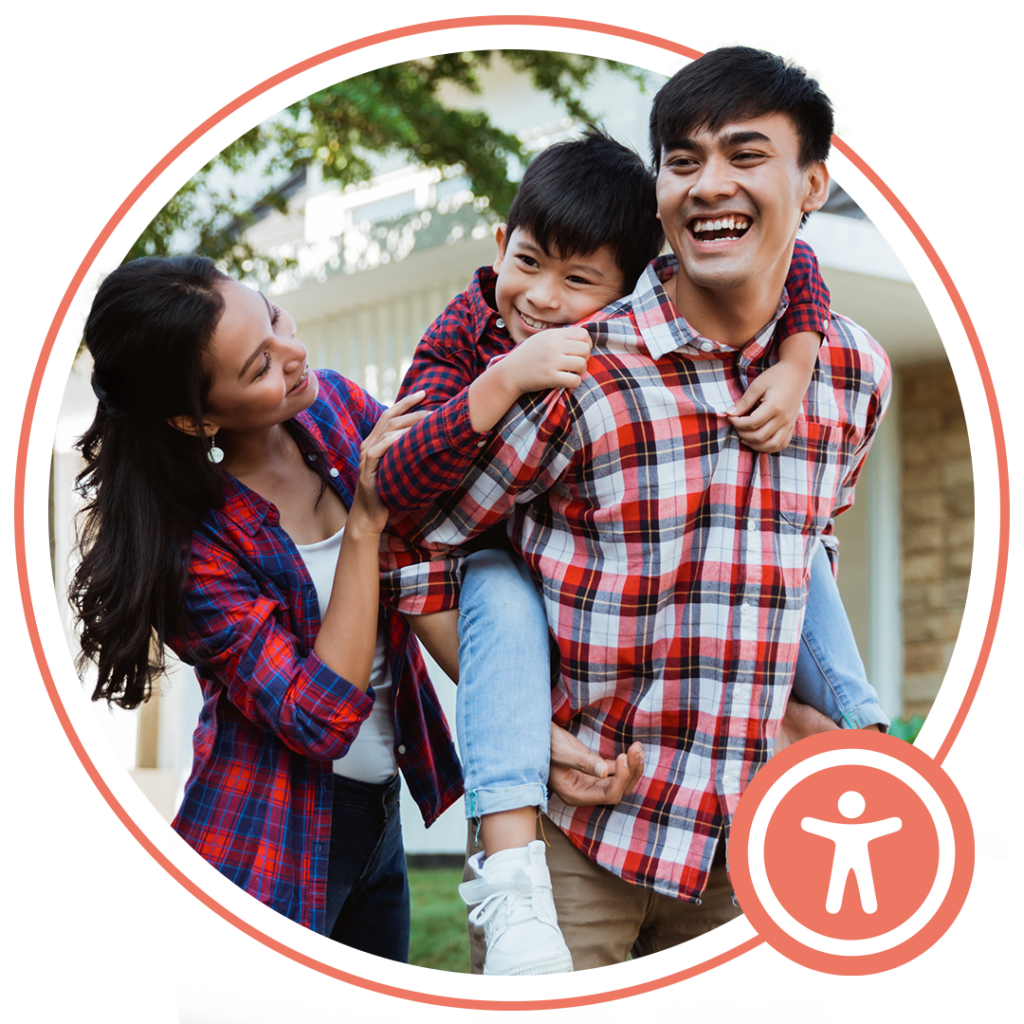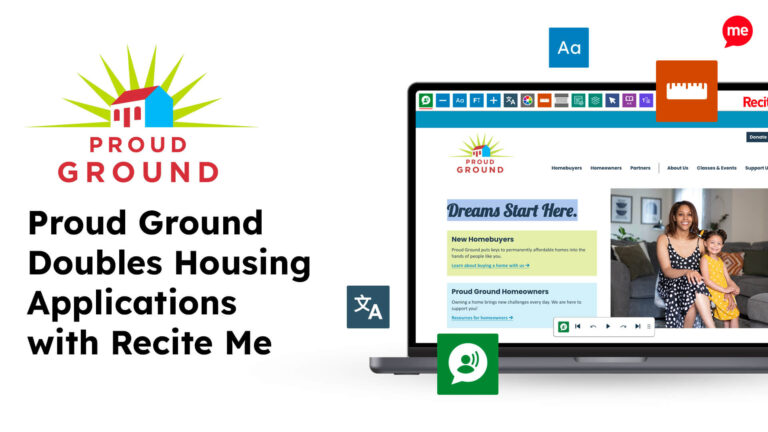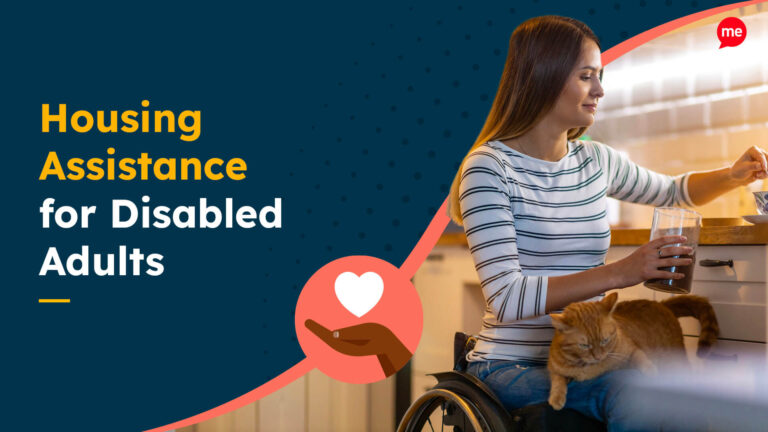Download Free Housing Accessibility Guide
Download NowThe Fair Housing Act (FHA) is an essential piece of civil rights legislation in the United States. Its goal is to eliminate housing discrimination and promote equal housing opportunities for all citizens.
While traditionally focused on physical accessibility, the evolving digital landscape necessitates a broader interpretation that also includes digital platforms. In this guide, we’ll explore the primary challenges and solutions of ensuring equitable access to housing and housing services and explain how Recite Me can help.
Understanding the Fair Housing Act (FHA)
The Fair Housing Act, enacted in 1968, prohibits discrimination in housing-related activities based on race, color, religion, sex, national origin, familial status, and disability. The FHA forms part of the Civil Rights Act of 1968, which was enacted as a direct response to the Civil Rights Movement. In its efforts to dismantle systemic inclusion barriers in housing, the Act has been amended several times over the years to strengthen protections, particularly for individuals with disabilities and families with children.
Physical Accessibility Requirements Under the Fair Housing Act
The FHA mandates that certain newly constructed multifamily housing units be accessible to individuals with disabilities. This includes requirements for accessible:
- Entrances.
- Routes into and through the dwelling.
- Accessible public and common-use areas.
- Adaptable design features within individual units.
For existing housing, reasonable modifications and accommodations must be made to ensure accessibility for individuals with disabilities.
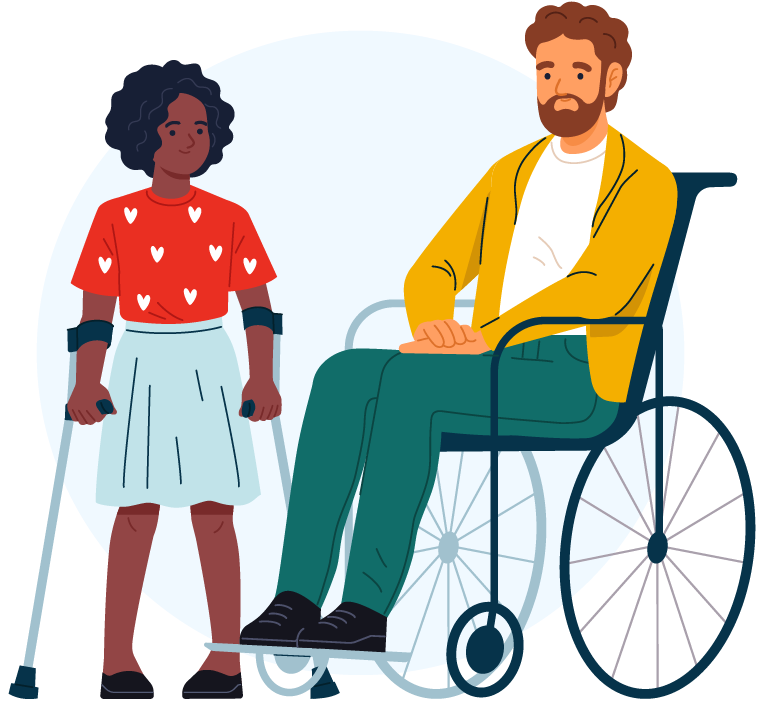
Digital Accessibility and the Fair Housing Act
Digital accessibility is becoming increasingly essential as more housing-related activities move online. In this regard, the cornerstone principles of the Fair Housing Act are underscored by Section 504 of the Rehabilitation Act, which prohibits discrimination based on disability in housing programs receiving federal financial assistance. Similarly, both public and private entities must meet minimum digital accessibility requirements under the Americans with Disabilities Act (ADA).
Making online applications, forms, and information accessible to everyone is essential because:
- Of the 5.2 million American households that use federal assistance to access modest housing, 69% are seniors, children, or people with disabilities.
- Nearly 58 million American residents are over 65, less technologically adept, and more likely to struggle online due to physical disabilities and vision deficits.
- Around 68 million Americans (approximately 1 in 5 people) speak a language other than English at home.
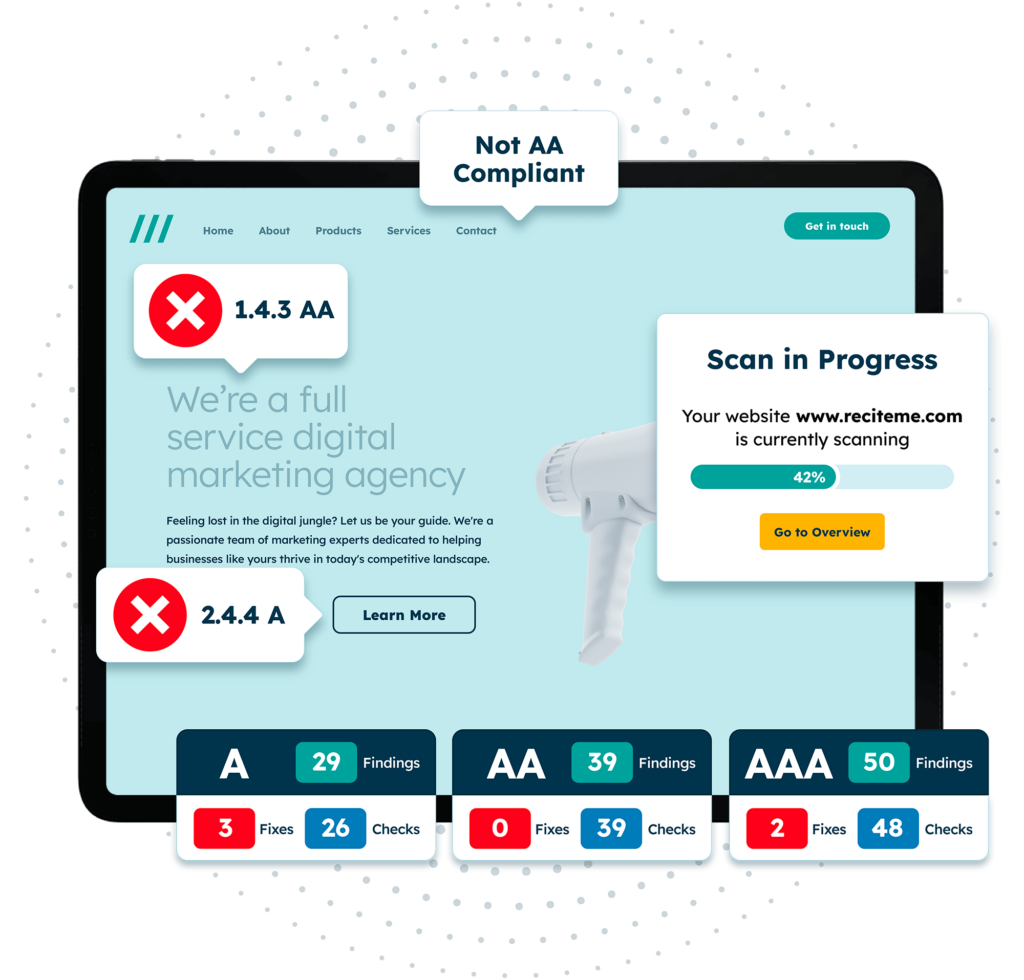
Free Accessibility Check of your Website
Detecting accessibility issues has never been easier than it is now. At Recite Me we offer a free automated scan of your websites homepage. Perfect if you’re looking to align your website with the ADA and Fair Housing Act requirements.
This scan will identify and highlight any accessibility non-compliance on your website. Followed by recommendations on how to implement the necessary changes to improve your websites accessibility score and standing.
The Role of the U.S. Department of Housing and Urban Development (HUD)
The U.S. Department of Housing and Urban Development (HUD) is tasked with enforcing the Fair Housing Act and ensuring compliance with its provisions. In recent years, the department has intensified efforts to enforce digital accessibility, particularly under Section 504. For example, housing authorities and other recipients of federal funds are legally required to ensure that their services are accessible to individuals with disabilities. This includes ensuring that all websites, online forms, digital communications, and applications are accessible to screen readers and other assistive technologies.
Challenges and Solutions for Ensuring Equitable Access to Housing Information and Services
Many housing organizations face challenges meeting accessibility best practices due to common issues like lack of expertise, outdated websites, and limited resources for implementing accessibility features. However, making housing information and services accessible needn’t be complex or costly. Here is a list of effective solutions to help your organization overcome both physical and digital accessibility challenges.
Building an Accessible Website
Inaccessible websites make it difficult for older people and individuals with disabilities to access essential information and services. Yet, in an assessment of 25 housing websites, 84% of desktop versions and 76% of mobile versions had accessibility barriers. Plus, of the 16 websites with online applications, only 13 were inaccessible to screen readers.
Easy ways to remedy this include:
- Conducting regular accessibility audits to identify and fix areas of non-compliance with Section 504 and Americans with Disabilities (ADA) legislation.
- Ensuring compatibility with assistive technologies like screen readers and voice recognition software.
- Utilizing third-party digital accessibility solutions to allow website visitors to make individual customizations.

Improving Access to Information for Rural Communities
According to Department of Agriculture statistics, 22.3% of Americans in rural areas and 27.7% of Americans in Tribal lands lack fixed terrestrial broadband coverage. So, offering alternative communication methods via printed materials or telephone hotlines is essential in ensuring these communities receive the same quality and quantity of information.
Improving Employee Awareness
Many organizations lack staff with sufficient knowledge of accessibility best practices, leading to houses and housing websites that fail to meet Fair Housing Act accessibility standards. Continuous training can significantly improve compliance. Housing organizations and service providers are therefore encouraged to provide regular accessibility training for employees and designate accessibility champions who are responsible for promoting and maintaining FHA accessibility standards.

Ensuring Inclusive Communication
Language barriers often prevent non-native English speakers from accessing housing information and services. Therefore, bilingual staff, translation services, and tools like Google Translate are essential. However, organizations must thoroughly check that translations are accurate and culturally appropriate.
Designing Inclusive Forms and Applications
Inaccessible forms can significantly hinder completion rates, as research shows that 34% of individuals who start a form fail to finish it successfully. Strategies to eliminate accessibility barriers on forms include:
- Providing transparent instructions, including examples of correctly formatted input.
- Properly labeling all fields.
- Providing clear error messages and guidance on how to correct errors.
Improving Employee Awareness
Many organizations lack staff with sufficient knowledge of accessibility best practices, leading to houses and housing websites that fail to meet Fair Housing Act accessibility standards. Continuous training can significantly improve compliance. Housing organizations and service providers are therefore encouraged to provide regular accessibility training for employees and designate accessibility champions who are responsible for promoting and maintaining FHA accessibility standards.

How Recite Me Can Help
Recite Me’s innovative suite of accessibility on-demand tools makes the process of digital FHA compliance straightforward:
- The Recite Me Accessibility Checker identifies inaccessible web design and makes recommendations for improvements.
- The Recite Me Assistive Toolbar promotes inclusivity by allowing end users to make customizations in line with their individual needs and preferences.
- Recite Me’s Free Website Accessibility Training Course provides a comprehensive introduction to the principles and practices of digital accessibility.
Organizations Leading the Way
Recite Me is proud to be working with numerous organizations in the housing sector already. Our current client list includes:
- Denver Housing Authority
- Habitat for Humanity of Northern Arizona
- Habitat for Humanity of Portland, Maine
- Habitat for Humanity Colorado
- Habitat for Humanity of Memphis
- Louisiana Housing Corporation
Stephanie Schiemann, Director of Communications and Public Affairs, Denver Housing Authority, commented:
“The Denver Housing Authority is committed to making our organization welcoming and accessible to everyone. We recognize that every person has a right to access quality information and resources, so we are taking advantage of tools like Recite Me to provide a better digital experience. With Recite Me, our residents, employees, and community members can interact and engage with our programming and services more easily.”
Learn more on how you can provide accessible housing services today
Recite Me is quick and easy to implement on your website and can typically be installed in under an hour. Our software is already active on hundreds of websites, and every year, we help millions of people enjoy inclusive journeys online.
Contact us today to learn more and discuss how we can help your organization meet its digital accessibility needs.
